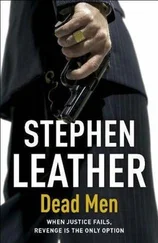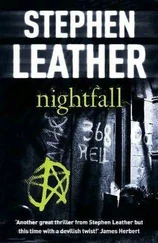‘I can think of some right wing politicians in the UK who would wholeheartedly approve,’ Harper said with a grin. ‘So the guards don’t interact with the prisoners?’
‘There is one area the guards control, at least in part,’ Ricardo said. ‘ La Muralla - The Wall - the punishment block. Prisoners who are sent there either by the Disciplina or by the guards, are very badly treated. I know the chief warden, Fernandez, because he was in charge when I was here, and though I was never in the punishment block myself, I heard the tales about it and saw the state of some of the people who had been in there. Fernandez is often down there himself, because he is a sadist who delights in torturing helpless prisoners. San Pedro is like a city within the city. It was built in the 1890s and only intended to house five hundred people but about three thousand live here now, including every sort of criminal from petty thieves to drug lords and corrupt politicians. There’s a hotel for official visitors, a hospital, workshops, factories and churches - the Catholic one has a beautiful statue of the Virgin of Guadalupe, known as La Morenita - the Brown Lady. There are markets, shops, bars, restaurants, pool halls, gyms, a football pitch, a swimming pool, and there are different barrios - districts - just like the city outside the walls. When you’re sentenced to do time in San Pedro, you have to pay an entrance fee to the prison based on your known or estimated wealth. So a petty crook might only pay fifty Bolivianos , whereas a corrupt politician or drug lord will have to pay thousands. You then have to buy a cell or a share of a cell in one of the sections. The prices vary, maybe as little as ten dollars to be one of five or six men sharing a single cell in the worst sections, but as much as two thousand dollars in the most affluent ones. You buy your cell from the President of the prison or from a real estate agent - no really,’ he said as he saw Harper’s sceptical expression. ‘You’re even given a legal document to show your ownership, witnessed by prison officials.’
‘What if you don’t have any money?’ Harper said, looking at a group of ragged prisoners sitting, head in hands, at the edge of the yard.
‘You work to earn enough to pay for a share in a cell, or if you can’t afford a cell, you sleep on the ground, in the open or on the stone floor of a passage like this one. A lot of the people are addicts or alcoholics who are often beyond help or hope. Others - sometimes whole families - try to build little shelters under the stairs or hide a few belongings in the cells of their friends, or in the roof-spaces of the buildings, but other prisoners will steal them if they find them, so if all you’ve got is a blanket, you would never lose sight of it, even for an instant. So, there is no guaranteed accommodation here and there are no prison uniforms; if you arrive in rags or even naked, that’s how you’ll stay. If you don’t have money, you don’t always eat either, because apart from the rice ration the government is supposed to provide for all prisoners - and in my experience, you often didn’t get it anyway - nothing is provided free. In any case, you would only eat the rice if you had no other food, because it’s widely believed that the guards mix some kind of tranquilliser into it to keep the prisoners docile. On the few occasions I ate the rice I felt drowsy afterwards and no one knows what drug they’re using or what its long term effects might be, so we avoided it whenever we could. It’s also often contaminated - I’ve even seen rat droppings in it. The kitchen where it’s prepared is in the Palmar section and it’s used as a punishment block for those sex offenders who haven’t been killed, and for prisoners who have cheated other inmates on drug deals or gambling debts. They are forced to work in the kitchen and live there too, sleeping under the tables on which they prepare the food, and the man who runs it - a lifer - is notorious as the most brutal and sadistic prisoner in the entire jail.’
‘And no one in Government sees anything wrong with this?’ asked Harper.
‘It suits the government to turn a blind eye to everything that goes on here, because this way the prison is very cheap to run,’ said Ricardo. ‘The guards are very badly paid and the chief warden steals their wages anyway - so they rely on bribes and kick-backs to survive. You often even have to bribe guards just to be sure of being put on trial - when I was in here, there were men who had been on remand for eight years, even though the legal maximum is supposed to be two. So you have to pay to get a trial, you pay again to get a lawyer and then - if you can afford it - you pay even more to bribe the judge to let you go. If you can’t, you just stay here and rot. Once you’ve been convicted, there is no parole system, so you serve your full sentence whatever happens.’
‘So there’s not much interest in rehabilitation then?’ Harper said.
Ricardo shook his head. ‘There’s none at all. And even if you’re innocent when you come in here, you’ll be guilty of plenty by the time you leave. So anyway, there are eight sections in the prison, each with their own courtyards, shops, bars and cafés, and it’s a democracy of sorts in here because each section elects someone to represent them on the Council of Delegates, who run the place. They set the tax all the prisoners have to pay to cover the cost of maintenance, roof repairs, repainting of the walls, and social events like the annual Día de los Prisioneros - Prisoners’ Day - on the 24th of September. It’s a day-long fiesta with bands, barbecues, drinks and, of course, coca, and all the cafés cook Sajta de Pollo .’
‘That’s the signature dish of La Paz,’ Lupa added, ‘a chicken stew with a mountain of chillies, pepper and cumin.’ She gave Harper a sly look. ‘It’s probably too hot and spicy for a Brit like you.’
Harper grinned. ‘Listen Lupa, I’ve been eating fiery hot Thai street food for years so a chicken stew with a few Bolivian chillies in it is not going to be a problem.’
She smiled back. ‘Challenge accepted, Lex. It’s going to be our meal when we get out of here this evening, with a few Anticuchos - those pieces of beef heart on skewers - with a dipping sauce of tomatoes and Locotos - crazy hot peppers - as an appetiser.’
‘Bring it on!’ Harper said.
‘Anyway,’ Ricardo said, ‘most men here can’t afford to eat Sajta de Pollo or Anticuchos , except maybe on Prisoners’ Day. The rest of the time they have to make do with rice and beans. They also have to do unpaid maintenance work on their section when it’s needed, like fixing the holes in the roof. The President of the Council of Delegates raises complaints about prison conditions with the Chief Warden and the Governor - not that it ever seemed to have much effect when I was here. And as well as the section delegates, national political candidates also often come here canvassing for votes.’
‘Prisoners can vote in elections here?’ Harper said.
‘Of course, do they not in your country? You often see candidates in here, invariably promising prison reform, lower penalties for drug offences or even abolition of the gringo drug laws. Since eighty per cent of the inmates are in here on drug charges, as you can imagine those pledges always go down well, though nothing ever seems to happen once the politicians have been elected. In theory prisoners are allocated to a section depending on what day of the week they arrive, but in fact it’s not so straightforward and they can buy their way into a different section … if they have the money. La Posta is for the rich and famous. The cells have fitted carpets, large screen TVs, balconies, en suite bathrooms and even hot tubs - if you have the money, you can buy absolutely anything here. But you not only need a lot of money to buy a cell in La Posta , you also have to be approved by the people already living there.’
Читать дальше











